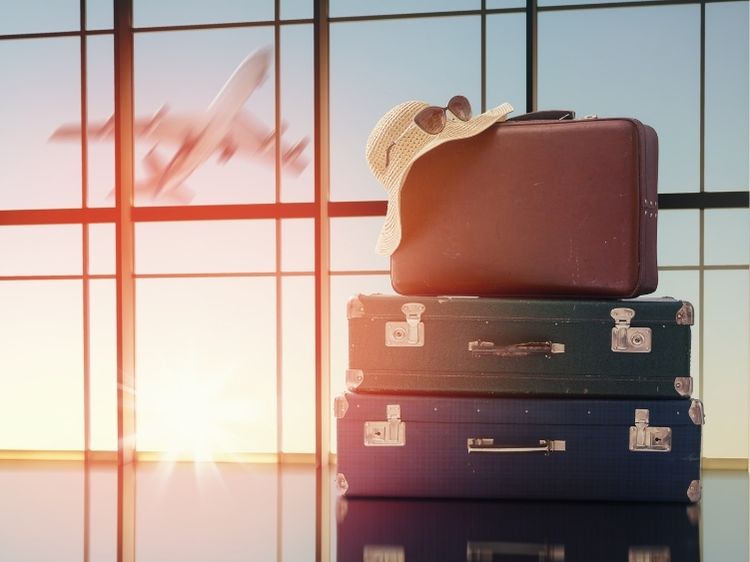Few destinations stir the soul and ignite the imagination quite like France. Whether it’s the romantic allure of Paris, the sun-drenched vineyards of Bordeaux, or the snow-capped peaks of the French Alps, this enchanting country offers something unforgettable for every kind of traveler. Planning a vacation to France can be an exhilarating process, but it also requires careful thought, attention to detail, and a dash of cultural insight. From choosing the perfect season to travel, to navigating French cuisine and customs, this guide provides everything you need to create a truly immersive French adventure.
Setting the Stage for Your French Escape
Before diving into the details of your itinerary, it’s important to clarify the type of experience you’re after. Are you dreaming of sipping espresso in a Parisian café, strolling through lavender fields in Provence, or exploring medieval castles in the Loire Valley? Defining your travel goals early will guide the rest of your planning process. France’s vast regional diversity means your vacation could include a blend of metropolitan glamour, coastal charm, and rustic countryside—all within a single trip.
When planning a vacation to France, timing is key. Spring and fall are considered ideal due to milder weather and fewer crowds. The summer months, while popular, can bring large tourist groups and high temperatures, especially in southern regions. Winter, on the other hand, is perfect for ski trips and holiday festivities in cities like Strasbourg or Chamonix.
Navigating Transportation and Getting Around
One of the many advantages of planning a vacation to France is the country’s well-connected transportation infrastructure. Major international airports in Paris, Lyon, Nice, and Marseille provide easy access to different regions. Once you arrive, the French railway system, SNCF, makes traveling between cities both comfortable and efficient. High-speed trains, known as TGVs, can whisk you from Paris to the Riviera or the wine regions in just a few hours.
If you’re interested in exploring the countryside or smaller villages, renting a car may be your best option. Keep in mind that France drives on the right-hand side, and many rural roads offer scenic routes that are perfect for a leisurely drive. Understanding these transportation options can save you time and help create a more seamless travel experience.
Choosing Where to Stay in France
From luxurious châteaus to charming bed-and-breakfasts, France offers an impressive variety of accommodation styles. In urban areas like Paris or Lyon, centrally located hotels and short-term apartment rentals can provide a comfortable and convenient base. If your plans include visiting the countryside, consider staying in a traditional gîte for a more authentic French experience.
When planning a vacation to France, proximity to attractions, public transport, and dining options should all factor into your choice of lodging. Booking in advance is highly recommended, especially during peak travel seasons. For those seeking an off-the-beaten-path adventure, smaller towns and villages often offer surprisingly high-quality accommodations at a fraction of city prices.
Savoring French Cuisine and Cultural Delights
No guide to planning a vacation to France would be complete without mentioning the country’s iconic cuisine. From freshly baked croissants at breakfast to five-course gourmet dinners, French food is an integral part of the travel experience. Every region has its specialties—bouillabaisse in Marseille, cassoulet in Toulouse, coq au vin in Burgundy, and more. Dining in France is not merely about eating; it’s a ritual, an art form that deserves to be savored.
Beyond the food, French culture values etiquette and formality in many social settings. When entering a shop, it’s customary to greet the staff with a polite “Bonjour.” At restaurants, tipping is not mandatory but appreciated for excellent service. Being aware of and respectful toward these customs enhances your interactions and makes your experience more enriching.
Crafting the Perfect Itinerary
Balancing must-see landmarks with hidden gems is part of the art of planning a vacation to France. While iconic sites like the Eiffel Tower, the Louvre, and the Palace of Versailles are well worth a visit, don’t overlook the magic found in quieter corners of the country. The Alsace region, for example, offers picturesque villages that feel straight out of a fairy tale. Brittany boasts rugged coastlines and a rich Celtic heritage, while Corsica delivers Mediterranean bliss with French-Italian flair.
Instead of trying to see everything, aim to immerse yourself fully in a few select locations. This approach allows for a deeper cultural experience and a more relaxed pace, which is often what travelers cherish the most after returning home.
Practical Tips for a Smooth Journey
To make the most of your trip, it’s wise to address a few logistical concerns in advance. Currency in France is the Euro, and while credit cards are widely accepted, having some cash on hand is always beneficial. Learning a few basic French phrases can go a long way in showing respect and fostering goodwill with locals.
France also boasts excellent healthcare services, but it’s advisable to carry travel insurance for peace of mind. Packing appropriately based on your destination and season will enhance your comfort. Comfortable walking shoes are a must, especially in cobblestone-heavy cities or hilly countryside areas.
Creating Memories That Last a Lifetime
At its heart, planning a vacation to France is about crafting an experience that reflects your interests, pace, and style. Whether you’re indulging in fine wines, exploring world-class art museums, or simply wandering through a local market, the magic of France lies in its ability to delight and surprise at every turn. With a thoughtful plan in place and an open spirit, your French adventure is bound to become one of the most memorable chapters of your life.

